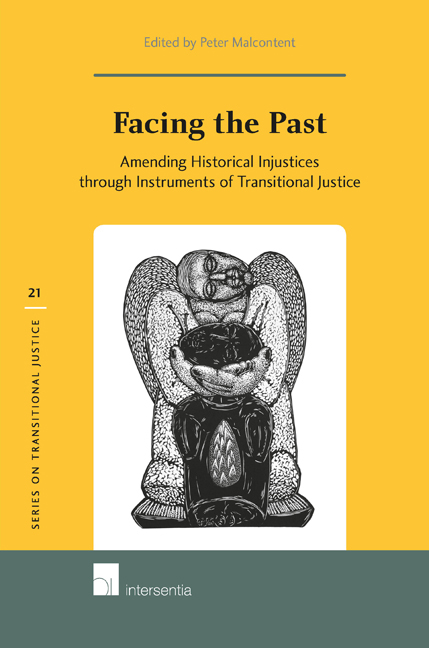The Marketisation of Historical Injustice
from PART I - TRANSITIONAL JUSTICE. WHAT'S IN THE NAME?
Published online by Cambridge University Press: 15 December 2017
Summary
INTRODUCTION
The past three decades have seen a growing number of committees, movements and individuals demanding financial compensation, restitution, or other forms of restorative justice, for historical crimes and injustices. In many cases, these claims were being put forward on behalf of social or ethnic groups and minorities. This chapter looks at the circumstances under which this remarkable tendency began. As we shall see, the political developments in the 1970s played an important role in raising the historical awareness of different groups and minorities. This was the decade of the ‘rights revolution’ and the growth of what some commentators later called ‘the politics of identity’.
CULTURAL RIGHTS AND HISTORICAL CLAIMS
Group claims for reparations arising from historical injustices are a relatively recent phenomenon. Reparations as such, however, have a long history. Since ancient times, wars have been ended by dictates, agreements or treaties that included obligations of the defeated to pay indemnities or tribute. In the twentieth century, however, such obligations (including the first attempts at the prosecution of defeated leaders as war criminals) have been increasingly framed as a form of justice and a product of international law. Nonetheless, such peace arrangements remain to the present day a form of retributive ‘victor's justice’. A recent example of such victor's justice is the reparations Iraq had to pay for the damages caused by the Iraqi invasion of Kuwait and the allied war. There is in general not much reconciliation or healing involved in such arrangements. Their one-sidedness is one of the reasons reparations have always been an object of controversy. The reparations Germany had to pay after World War I are perhaps the most discussed and dubious example of reparations and of their dangerous consequences.
Although sometimes referred to as ‘third generation’ human rights, group or collective rights are not exactly new either. Historically, minority rights are much older than (individual) human rights, which came into being in the mid-twentieth century. Ever since the Westphalian Treaties of 1648, peace arrangements have included the protection of religious rights and much later, since the start of the nineteenth century, of minority rights.
- Type
- Chapter
- Information
- Facing the PastAmending Historical Injustices Through Instruments of Transitional Justice, pp. 43 - 56Publisher: IntersentiaPrint publication year: 2016



